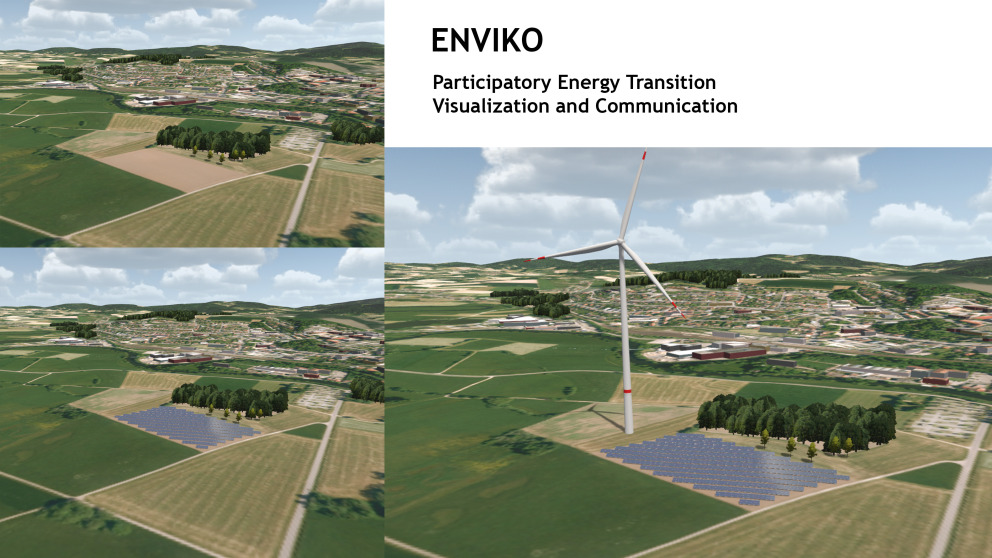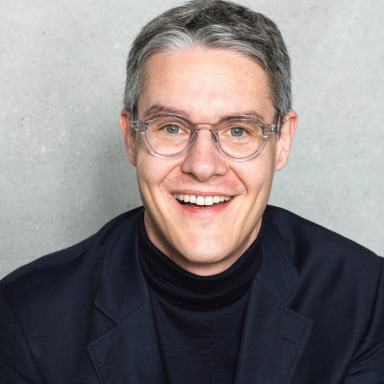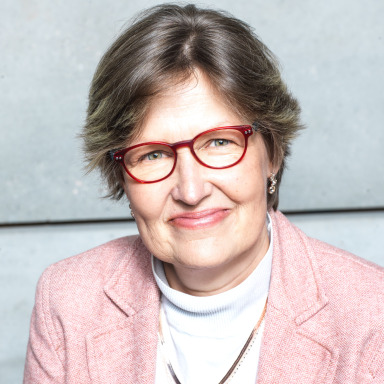Participatory Energy Transition Visualization and Communication
Duration

Digital technologies are not widely used in public participation processes in support of the energy transition. The research project "Participatory Energy Transition Visualization and Communication" (ENVIKO) aims to facilitate dialogue among citizens by developing experimental digital technologies that couple visualizations of energy transition infrastructure with communication solutions.
This project was developed in light of the opposition faced by many energy transition projects in Germany. The federal government would like to accelerate the expansion of renewables while also providing broad opportunities for public consultation and benefit-sharing. Digital solutions offer a means to deliver innovative participation formats without incurring massive delays. The ENVIKO project will explore this possibility in a series of experimental studies.
In recent years, enormous progress has been made in the development of various visualization technologies, including 3-D visualization, situated visualization on mobile devices (augmented reality), and projections. The use of augmented reality applications to visualize proposed wind farms, for example, has become increasingly common in planning procedures and is often used by project developers. However, the existing solutions do not facilitate interactions between users, enable public participation or provide communication channels for feedback and inquiries. There is an increasing need to create attractive and effective online solutions as alternatives or complements to real-world dialogue.
Prototypes for virtual participation
The research project addresses this need by using elaborate 3D platforms to facilitate dialogue between users within virtual spaces. The project takes a participatory approach to design and, in a first step, citizens are invited to develop ideas for communicative formats within a living lab. Engagement with the project is incentivized using gamification strategies as well as opportunities to shape design outcomes and collaborate in the creative process. In a second step, prototypes based on these outcomes will be tested in the real world in cooperation with partners from the field, enabling the researchers to observe user interactions in real energy transition planning processes. This is achieved through cooperation with cities, towns and communities throughout Germany, from the vulnerable Ahr Valley region to the city of Ludwigshafen to Bavarian mountain regions that are opting to embrace wind power. In a third step, the applications are evaluated, developed further and, if necessary, reused in other regions.
The researchers will consider three key aspects in their work:
- how the use of augmented reality and virtual reality technologies affects participation processes related to the energy transition,
- the extent to which the interests and needs of citizens and relevant stakeholders can be better captured and integrated using these technologies, and
- how energy transition projects can be communicated more widely and transparently among affected populations through the use of responsive visualization and communication technologies in participation processes, and how input can best be processed.
If the project is successful, future energy transition projects will benefit from these new digital solutions, which will enhance citizen participation and accelerate planning, the researchers hope.




